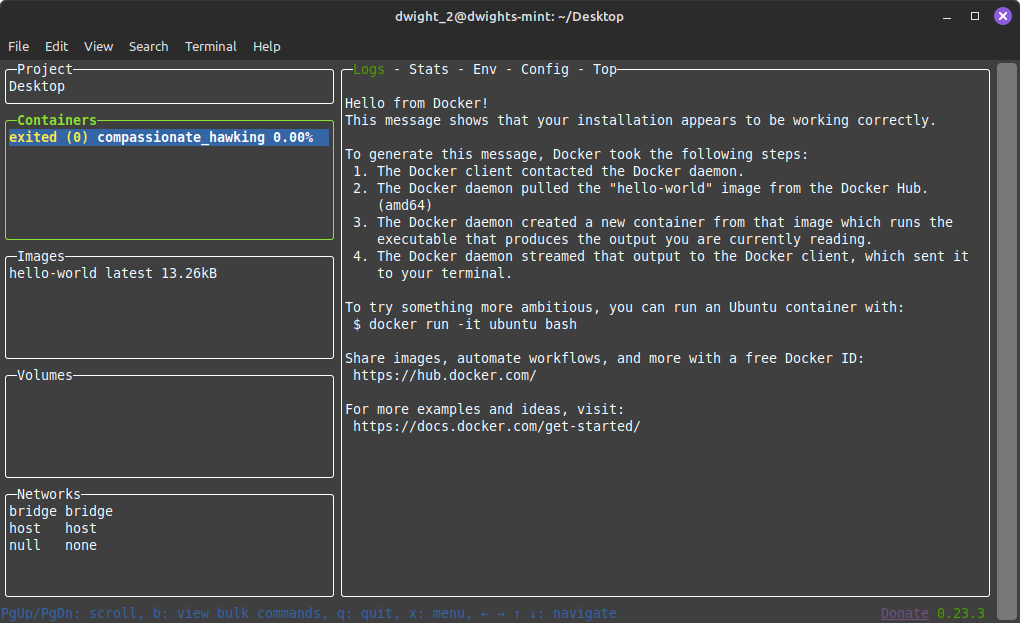Lazydocker installation guide
Lazydocker is a terminal based UI tool that allows to manage containers, images and volumes for Docker and Docker Compose. Lazydocker is an open-source project written in the Go programming language.
Prepare environment
Before starting, make sure you have installed Docker.
Install Lazydocker
Get the latest version tag of Lazydocker release from GitHub. Assign version tag to variable.
LAZYDOCKER_VERSION=$(curl -s "https://api.github.com/repos/jesseduffield/lazydocker/releases/latest" | grep -Po '"tag_name": "v\K[0-9.]+')Download archive from releases page of the Lazydocker repository.
curl -Lo lazydocker.tar.gz "https://github.com/jesseduffield/lazydocker/releases/latest/download/lazydocker_${LAZYDOCKER_VERSION}_Linux_x86_64.tar.gz"Unzip archive:
mkdir lazydocker-temptar xf lazydocker.tar.gz -C lazydocker-tempMove binary file to /usr/local/bin directory:
sudo mv lazydocker-temp/lazydocker /usr/local/binNow lazydocker can be used as a system-wide command for all users.
We can check Lazydocker version:
lazydocker --versionArchive and temporary directory is no longer necessary, remove them:
rm -rf lazydocker.tar.gz lazydocker-tempTesting Lazydocker
Run hello-world image inside a container:
docker run hello-worldStart Lazydocker:
lazydockerYou will see all of your images, containers, and volumes.
Press CTRL+C, to exit Lazydocker.
Install issues
Permission denied while trying to connect to the Docker daemon socket
This is not an error it a choice of security!!
If you receive this message it is most likely because you did not give your user the permissions to access the Docker daemon without the use of sudo. This is usually done during install, you can check the Docker guide: Linux post-installation steps for Docker Engine
Uninstall Lazydocker
If you decided to completely remove Lazydocker, delete the binary file:
sudo rm -rf /usr/local/bin/lazydockerYou can also remove Lazydocker config directory:
rm -rf ~/.config/lazydockerCredit to Lindevs for most of the guide. Check out many of their other software install guides and more!


No Comments